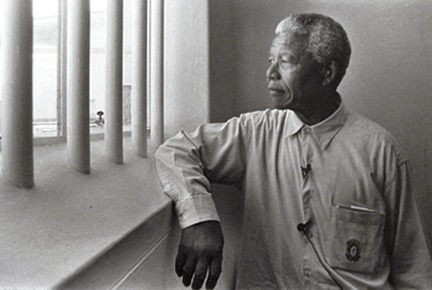|
Introduction |
|
John F. Kennedy [1917-1963]
President Nelson Mandela [1918-2013]
A. ContractB. Are government issues my issues; really?
A: ContractThis programme is not about testing you; it is about discovery. In order for you to benefit from it, you will need to be honest. If you are doing this alone make sure you are honest with yourself. If you are doing this with a facilitator/lecturer in class, please read the points below, talk about those that worry you, and then agree to the following: I will, to the best of my ability, try to a. enter each module, discussion, group activity or difference of opinion, with enthusiasm, tact and respect for those around me; b. follow instructions and enter into the spirit of the session by not paging forward to check answers, or to gain information that will put me at an unfair advantage over my fellow delegates; c. make it easy for those around me to learn, discover and enjoy the content of the programme by realising that each one has his/her own point of view and perspective.
B: Are government issues my issues?You will probably agree with the following: ... we have been the envy of the world – one of the youngest and most exciting democracies, we have made changes and advances in the last few years which have amazed everyone, we have managed to establish ourselves as an economic force with a great future. South Africa is truly, in many ways, a political miracle: see video below and the warning about not teaching Civics in schools. But how does society work, and how does it affect your pocket? Are government issues my issues?
You might like to discuss these questions with someone: Do you know where your taxes go? Why has the government placed importance on campaigns such as Masakhane, Asiphephe, and others? Why does the government worry about Aids/HIV, as well as the Covid numbers? Surely SA's crime is our internal problem? Why are other nations worried about it? Where does the finance come from to repair our roads, keep our parks clean, plant trees, repair damage to buildings and lay water pipes? Why do the authorities not simply charge the people that use them? In what way does every citizen of SA also partly "own" these facilities and services? How does the shocking death rate on our roads take money out of your pockets? Is your vote working for you? How?
What did you do with your vote today? How can you take responsibility to put more money back into your pockets?
People in the most advanced democracies in the world have to be taught how and why things work; what they can do about changing things for the better and why everything we do every day is intimately linked to finances. If your community/city/country is not working efficiently, it's money out of your pockets... If your community is run effectively, it's money back into your pockets. Everyone in any community needs to be aware of these matters, in order to make a difference. Let’s change that together by teaching each other. What you will learn in the programme will empower you, and then help you empower others. Be aware. Be responsible.
Richard Dreyfuss, Academy Award winner and star of American Graffiti, Jaws, The Goodbye Girl & Mr Holland's Opus, reaches an interesting conclusion about a country where Civics teaching is neglected: that it is self-destructive. He talks of America as being a "political miracle" and that the only "ones who don't know this are our (their) children." I think this is also true of South Africa: it is a political miracle. But our school going generation of kids are not taught how to work effectively within this framework. Civics should be doing the job. And this online training course goes some way towards assisting with this...
I think we need to educate our people - make them aware of the power they hold and the fact that they are the government. It can start with you. This is what a nation is all about: being aware and then empowering others to also be aware...
Before & After QuestionsBefore you continue to Module One, please see if you can answer the questions below - if you are working with a Facilitator, allow them to get input from various delegates or students; don't be surprised - it would be unusual for anyone to know many of these answers. Then when you have completed all modules, answer them again to see just how much you have learnt. Good luck.
Were you able to agree, in principle to the Contract; and did you at least attempt to answer the questions above...? Be sure to come back to them at the end - you will be amazed to see, after finishing, that you in fact do know the answers.
|


